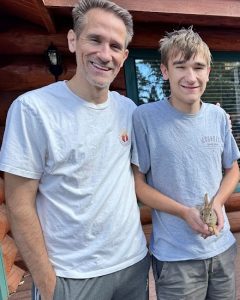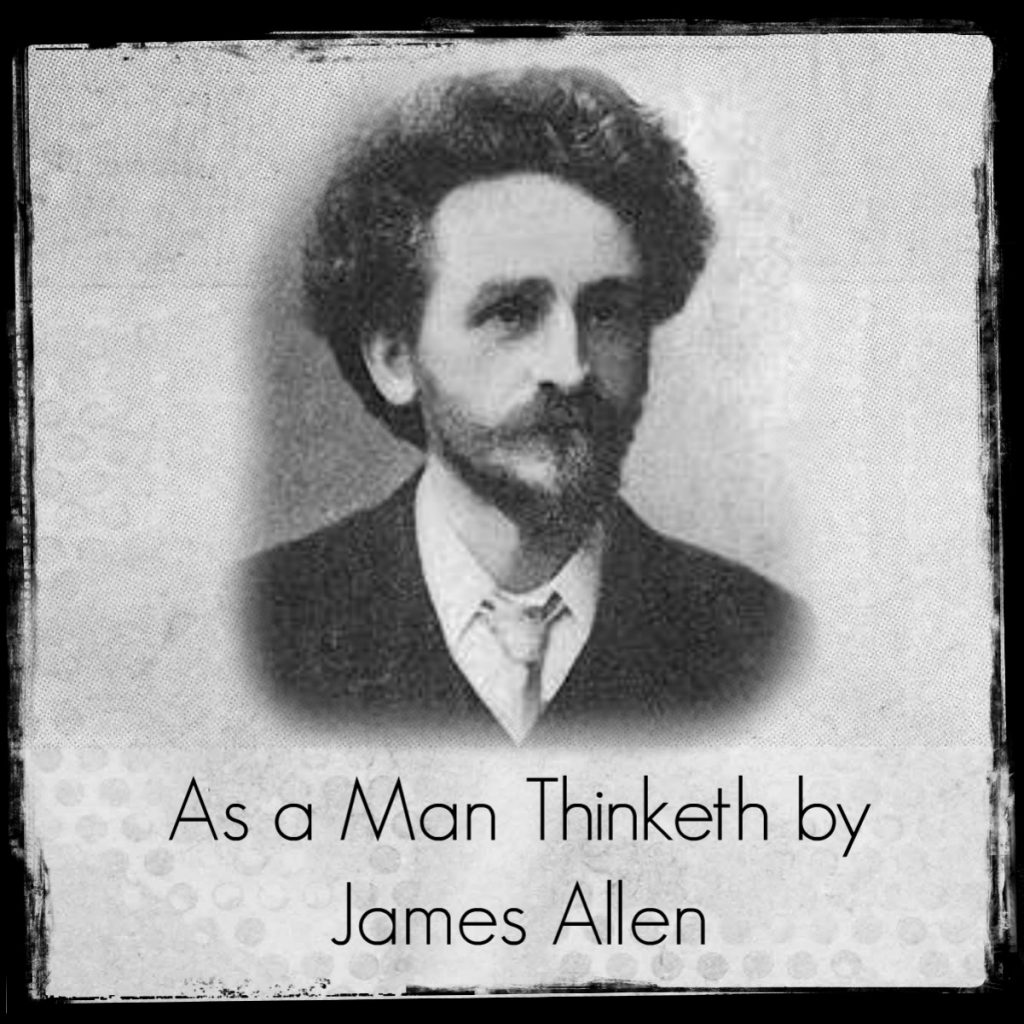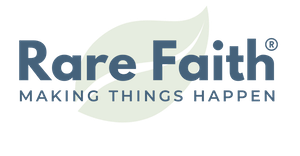Marnie Pehrson interviews me to uncover tips for monetizing your gifts and transforming your talents into income. Marnie was one of my mentors in the beginning, and inspired me to put my message into books.
You too have gifts and talents that can be monetized. Listen in to be inspired and encouraged to take the next effective step.
Resources related to this podcast:
www.BookWritingRetreat.com
www.PortaltoGenius.com
TRANSCRIPT:
Announcer: Welcome to the rare faith podcast. Where the solution to every problem is only an idea away and where the same activity, with just a little more awareness, always yield better results. Award-winning, best-selling author Leslie householder brings some of her best information to this inspiring series of life-changing episodes that you won’t want to miss!
Show notes for this episode can be found at ararekindoffaith.com
Marnie: This is Marnie Pehrson with Leslie Householder. We’re gonna just chat and let y’all eavesdrop a little bit. And then we’ll open it up for Q&A.
Let me give you a little bit of introduction on Leslie. Leslie householder is the award-winning, best-selling author of The Jackrabbit Factor; Why You Can and Hidden Treasures; Heavens Astonishing Help with your Money Matters. Wife to Trevin and mother of seven. Leslie is also a contributing author to multiple Chicken Soup for the Soul publications, a resident of Mesa Arizona, she is the founder and president of thoughtful life; an organization dedicated to helping families achieve prosperity against the odds, a popular keynote speaker and educator. Leslie creatively uses humor and story to help her audiences profit from their losses. You can visit her website at thoughtsalive.com or prosperyourfamily.com. You can also get the Jackrabbit Factor for free. Isn’t it free download Leslie?
Leslie: Yes it is.
Marnie: jackrabbitfactor.com and she’s writing the sequel so, or have you finished it?
Leslie: We’re in the editing.
Marnie: Okay, great. Just on a personal note: I met Leslie back in, I think it was like mm 2000, 2001 or somewhere around there. At the time, I was a struggling entrepreneur making, I don’t know, a couple thousand dollars a month at the time. Just trying to get by and supplement the family’s income and we were having a little bit of, well, quite a bit financial challenges at the time. And when I met Leslie and told her about my situation, she’s like, “I can help you with that.” And so she started teaching me these principles and my income just started doubling and tripling and quadrupling and it just kept growing! And I attribute it really to meeting Leslie. I would not be the success I am today, had I not met Leslie Householder. So, I really appreciate you being here today Leslie.
Leslie: Thanks for having me, Marnie. It’s always fun to reconnect and shoot the breeze and talk about what everything’s happened. It’s been an amazing decade.
Marnie: Yeah it has. So, back up. Speaking of amazing decade: How did you first figure out that your thoughts had a direct impact on the results that were showing up in your life?
Leslie: You know I, I’m sure that my parents had taught me some of that growing up. Just, you know, principles of thinking positively and everything. But it was after, after I got married and my husband and I were struggling financially, in a big way, and really frustrated. With, just when we think we’re going to climb out of the hole, something else comes to kick us back in and wondering why we were the only ones experiencing this. You know? Everybody around us seemed to be doing just fine and you’re like, what is wrong with us, that we can’t seem to get on top of things? You know, the car accident or the medical bill or the whatever… Just things kept getting in the way of it.
And so we had some friends who said, “you know, you ought to come with us to some of these seminars that were teaching principles of right thinking and prosperity and success.” And they probably could see right through what was going on, and knew that we needed to get around people who were doing well and learn the way they thought.
Because, if you can get around people who think on this different level, it can rub off on you. You know? You can start to think like them. You will start thinking like the people that you hang around the most. And so we’ve learned to make sure we hang around people who have the kind of lifestyle and happiness and fulfillment that we want.
So we started going to do seminars and each one of them would drop a morsel in our bucket that said, you know you’re on the right track. We would come away with, oh, some kind of an aha. Like, “oh I’d never thought of it that way before!” And we would take notes. Seriously, like, “ooh, like, that’s not naturally the way I think. I need to remember that” You know? And so we’d take notes and we’d come home and about two weeks later we’d fall off our high and be back to where we were before.
So, we actually started going to these, probably about once a month. Finding somebody to learn from. A book to read or a seminar to inspire us, and each one gave us a little piece of the puzzle. We knew there was something big to what we were learning, but we just couldn’t quite wrap our brains around it.
And I remember staying up late, talking with some friends of ours who were doing well. Who had figured out how these principles work and we’re applying them. And I mean, I was sitting in this chair leaning forward and they were sitting in their chair, leaning forward and explaining these synchronous experiences they’d had. They’d set a goal and then these amazing things would happen as a result of it. And I knew there was something to it, but I couldn’t put my finger on it. I couldn’t identify what was happening long enough to see it happen in my own life. It was, you know, you’ve gotta think big. You’ve gotta dream big. You’ve got to believe. You’ve got to do all these things. Like, yeah yeah yeah, but for some reason my analytical mind needed more to hang on to. I, it, it just wasn’t enough for me to be told what to do. I knew I had to understand why, and so this, this goes way back. This was early 1900, 1900… Haha.
Marnie: You are old. Haha.
Leslie: 1990s. And that’s when we started to really gather the pieces and finally they all came together and we started seeing things work. So, that was where it all started.
Marnie: Hmm. You talk about it. You, your analytical mind wanted to know how, and everything. Tell us a little bit of some of those how’s of why, how this works.
Leslie: Okay. Well, for one thing, I think one of the images that helped me understand this, was thinking positively, or thinking you know, identifying a goal that you want to achieve. First of all, say you wanted to achieve going on a trip with your family in a Motorhome. All right, so some people who set goals, they, they’ll think, “yeah, we want to go on a trip.” And it’s this vague generality. Other people, they’ll say, “yeah we want to go on a trip to Mount Rushmore and we want to do it in July of 2010.” And that’s better, but it’s still a little bit of a generality. The person who takes the time to daydream about what that would feel like, answering the question what will it feel like when we are at Mount Rushmore, in the motor home, with our family and see yourself sitting around the motorhome table and looking out the window and playing UNO together… Or, what are you going to eat? What time of day is it when y’all come back to the motorhome to have s’mores outside? Or, you start to put some detail around it so that you can see a picture on the screen of your mind.
We all have this screen of our mind that is a tool. That is so unused. On a conscious level, it’s there. We’re always imagining things that have happened in the past. We’re looking forward to things that are happening in the future. We’re, we’re analyzing the things that are happening now and we’re constantly using that screen of the mind. But if we can stop and put on the screen of your mind, purposely an image of the experience you hope to have, and not like you’re watching it on a movie, but like it’s around you 3d surround sound. You’re in it. With all the environmental noises. The smells. The temperature. Everything you can think of that would help you answer the question, “what will it feel like when…” And then you answer that question. And the answer to that question has to be an emotion. You can’t answer the question, like, “oh it would feel great.” No. The answer is the emotion. So you generate that emotion.
Well, what’s it going to feel like? And really, what’s happening, is you’ve got… There’s a part of your mind that sets the goal, but a whole different part of your mind that achieves your goals. And most of the time people are going around wearing themselves out trying to accomplish their goal with the same part of the mind that set it, instead of the one that achieves it.
And that’s what we were doing all those years, is we were setting our goal, consciously saying, “okay, yeah. We want to have two thousand dollars a month income.” Which was almost going to double our money at the time, and we would set the goal and say, “yeah that’s what we want.” And then we’d get to work consciously trying to figure out, “okay, how we can do it? Where are we going to go? What are we going to do?”
And here’s one of the things that helped me the most: Once you place the goal, you’ve put it in writing. You’ve described it. You’ve answered the question, how will it feel? When you’ve set a date? (Which is just your best guess at how long it takes for that particular idea seed to gestate.) That is planting the seed. You’ve set things in motion in the world around you, so that the right people, the right resources, everything’s starting to line up on your behalf.
You know, this whole world is this ocean of motion. People are going about their days. It’s this busy, busy commotion going on. And conversations happening and ideas coming along, and, and all of this is going on in all these different people’s lives. And there’s billions of people on the planet and the solutions that you’re looking for, in order to accomplish that goal are only an idea away. And it doesn’t take much for life to deliver the right person to you, at the right time, to bring you that idea or to have it flash on the screen of your mind directly.
But when I would set the goal, and I’d plant the seed, and I’d decide what I wanted, I immediately would go into, “oh, I wonder if it worked? I wonder if that did anything?” Well, that’s doubt. That right there kills the seed. You’ve got to set it, and forget it, and go about your business, knowing that things are happening.
And here’s something else. In all those years that we were struggling so much, I was convinced that if I wasn’t physically on, on task making the goal come true; if I wasn’t busy doing what I needed to do (making phone calls or writing letters or shoveling dirt whatever it was that physically needed to transpire) if I wasn’t actively engaged in those physical activities, then nothing was happening. That was what I used to believe. I used to believe that it required my constant attention and energy and focus and activity to make it happen. And if I took a break, everything stopped. And because that’s how I believed, that’s what was happening. And I was never strong enough to do it on my own. I was never smart enough to make it happen on my own. I wasn’t clever enough. I didn’t know what all needed to happen in order to achieve the goal.
But when I realized, that when I set the goal and I keep belief, then things around me are happening on my behalf. Unseen help is organizing all the things I need and lining it up for me. And as long as I keep moving my feet I would meet with each piece of it, at the right time. And so, when I needed to take a break, if I was burned out; if I needed to spend time with my family, I could do it and just only imagine, “I wonder what else is going on to line things up for me while I’m spending time with my family?” And it kept things moving into place. And I tell you, using this principle we have so far achieved every goal we’ve ever set.
Now there are certain goals that haven’t been achieved yet but I have no doubt that we’re going to achieve every one of them, that we determine is important to us. Success becomes predictable. It doesn’t always come when you expect it should, but I’ve also found that when it doesn’t show up when you want it to, it’s because the timing wasn’t right.
It’s like a woman who is expecting a baby. You know she may be anxious for that baby but she doesn’t want the embryo, she wants the baby. And she wants it healthy and well. So if it doesn’t come on the due date, instead of fretting that, “oh it didn’t happen on the date I said, I guess this isn’t gonna work.” Well the woman is still expecting. It’s not like she’s not going to have the baby because it didn’t show up on the due date. In fact, the longer she has to wait the more, the more predictable it should be. That, “oh my gosh, we’re just that much closer!” The longer you have to wait, the more in anticipation you can become. And we’ve learned to feel gratitude that it didn’t show up when we expected it to. Just choosing to believe that there’s a reason and that it’s going to be better for the wait. Boy, I just rambled, haven’t I?
Marnie: Hahah. No. That was good. You know, one thing that I was thinking about, is when you very first taught me these principles, I started using them. And I would set monthly goals. And, and they started happening. You know? They’d be huge ones I could set, and they would happen. And, and I kept doing that probably for a couple years. But, I woke up one morning, or it was at some point along the way, and realized that I wasn’t making any progress toward the overall big picture of where…
Leslie: I remember this.
Marnie: So I call you up and I’m like, “Leslie, I’m just not making any progress. Sure, I can make these monthly goals, and we, you know, we survive month to month. We’re doing fine, but I’m not going anywhere. And I was just so depressed. And you told me that depression is a good thing sometimes. So talk a little bit about that.
Leslie: Well, if I remember right, and this is something that has happened to me. It’s happened to everybody I know. Is, is when we’re depressed about the way things are going, because they’re not quite what we wanted them to be; that is discontent. I believe it’s God’s Way of telling us that there’s something, there’s something better. And that there is a question that you need to ask. And once that answer comes, you’re going be able to break through, and experience life on a whole different plane.
Now, that depression was getting your attention, wasn’t it?
Marnie: Right.
Leslie: What did you finally conclude?
Marnie: Well, I finally concluded that I was a rat on a wheel. You know? I was using the principles to, to just spin a wheel. You know? And, and I had to start looking at the long term like, what you were talking about. How is it gonna feel long-term? Where do I want to be long-term? And have the long term goal in mind. And not get so bogged down. (And we got to meet this goal for this month and this, and this, and this.) And the main thing I remember thinking is the first steps of getting off a rat wheel is to be still.
Leslie: mm-hm
Marnie: And I had to just stop. And I actually stopped trying to make it happen. Stop trying to work, work, work, work. And I just quit working. And did the bare minimum business, for I don’t know, a couple weeks. And just work on my house, and did some things. And, and we had some financial things that straightened themselves out after that.
And then, I think I operate on a totally different way now, than I used to. I don’t. I’m not constantly looking at monthly monetary goals, and all those kind of things. I focus on who I want to be and how I want to feel about myself, and my life, and creating that feeling in my life. And the other stuff just happens.
Leslie: I’ve learned the same thing that, you know, I’ve stopped encouraging people to set money goals. Because, yeah, you can achieve them but then you’re right back to where you started from, and you have to set it again. And start again and do it all over again. And that can get really, really tiring. And all the while, the life you really want is kind of slipping away from you.
And one thing I remember about that experience Marnie, is that you said you had gotten really good or used to get a charge
Marnie: mmm-hmm
Leslie: out of pulling the rabbit out of the hat.
Marnie: Yeah.
Leslie: Do you remember that?
Marnie: Yeah. I remember that, yeah.
Leslie: You kind of trained your subconscious mind to get good at solving the impossible problem. And so in a way it was providing you with plenty of impossible problems to solve because you were getting some satisfaction out of that.
Marnie: Yeah, yeah.
Leslie: Until you got tired of it.
Marnie: I had to learn to find my thrill out of being who I want to be and living my purpose. And once I started living my purpose and got my thrill out of that and instead of making the miracle happen this month to pay the house payment. You know?
Leslie: Yeah. And that’s something else I’ve learned just recently. This is one of the key pieces that’s coming through with my sequel, Portal to Genius, is that these principles work for pretty much anything, but they work best if you’re applying them to fulfill your life’s purpose.
When you’re in alignment with the core of who you are and what you’re here to do, then you can be busy doing those things with an unconscious trust that everything’s going to work out and it does. It does. And it’s one of the scariest leaps we’ve ever had to make, hoping that it’s a true principle. Deep inside I knew it was. It had to be! I mean, it just made sense, that if I’m really doing what I’m here to do, if I’m really aligned with my life’s purpose and the unique contribution I can make to humanity; then why wouldn’t all of the elements of the universe come together for me to support that? It only makes sense. And I know that I have felt that strength, that direction, that support from God, that everything I need will be supplied if I keep doing what I know I’m here to do. And so for some people that’s the first challenge. Is figuring out ,well, what am I supposed to do? What am I here to do?
This is why I think what you’re doing, Marnie, is so valuable and so important. Learning to monetize your gifts. Well, first of all, you got to know what your gifts are. And I think people tend to look beyond the mark, to discover what those are. They take for granted the gifts that they have, and they assume that everybody can do what they do. And that’s not entirely true. What would you say on that?
Marnie: Yeah. It’s not true. I think, I think within you is everything you need. You’re just like the seed. You know. The Acorn. Within you is everything you need to accomplish what you’re here to do. And you may think that your talents or skills or life experiences are ordinary and that other people can’t use them, but they really can. I think our purpose is locked within our road of hard knocks. The lessons that we’ve learned from that and the skills and the talents that we’ve developed along the way.
Leslie: Yeah. I think back in all those years that I was struggling so much financially in depression and bitterness and questioning whether or not there really was a God. Something that I’d always believed, and did again rediscover. But during those dark times I said, “what is going on and why do I have to endure this?”
But, looking back I can see that it was exactly what I needed for me to discover what my purpose is. You know, and I have many, many purposes, I feel. Many things that I feel like I need to do. But as far as my contribution to humanity, at large, so I can leave a legacy; that’s one of the things I want to do. Those experiences carved out a place in my heart, to receive the answers that made me so passionate to share them, once I received them. If it had just been, “oh yeah, I kind of had a bad day. Oh look, learned a principal. hmm.”
I never would have gone through, what I’ve been through, to make this information available to the world. Never would have done it. But it’s because it was so hard, and so painful, and so discouraging, and it’s so significant, that when the answer came it was like, “*singing: WoOOOOhw!” You know? And you can’t not talk about it.
Marnie: Yeah.
Leslie: I mean, it happened 10 years ago, I’m still talking about it! That’s how profound it was.
Marnie: Yeah. Well, I noticed at that the writer retreat you held last month, is every one of those women had been through something difficult that made them passionate about writing their book, sharing their story and getting it out. And that’s what’s gonna make them successful.
Leslie: Yes. It’s the passion. I tell you, the passion is the portal to genius!
For a lot of years there I wondered, well, I remember watching the movie Rudy. Did you ever see that Marnie?
Marnie: I don’t think I’ve seen it.
Leslie: It’s Rudy Ruettiger. He’s the football player who wanted to play for Notre Dame, but he was just this little runt, and his whole life he just wanted to play for Notre Dame. And he wasn’t built for it. He wasn’t anything. But it was just his determination. His passion. And you watch, (and it’s true story), you watch him go through all these obstacles, to finally achieve that goal. And it’s, I’m getting chills right now, just thinking about that movie. But I remember watching that in the mid-1990s and feeling like, “oh, that was a neat movie. Great movie.” But depressed at the end, because my reaction to that was, “I wish I could be that passionate about something.”
I don’t even know what it would be. And I started wondering, “well, what could I be so passionate about?” And I’m right there in the middle of all my financial problems, not knowing that my experiences right then and there were preparing me to discover my passion! It hadn’t been discovered yet, but I started looking for it.
And I tell ya, ask and you shall receive. Whatever you look for, you’re gonna find. I can’t think of anything that someone couldn’t look for and not find it, eventually. I mean, you know, if you can see it on the screen of your mind, and see yourself finding it. If it exists, you’ll find it. You know? It’s just one of those principles.
And that was what I was looking for. I set a goal to find my passion, and didn’t know I was asking for trouble, first, to get there, but it all worked out in the long run. And I love what I do. I tell you. I pray every day, “thank you for the work I do.” I love what I do.
Marnie: That’s a phenomenal place to be, when you would do the work that you’re doing, whether you got paid to do it or not.
And I’ve noticed that when you do it, at least for me, I have a real passion for some things that I work on, that don’t bring in a revenue stream. You know what I mean? But I’m passionate about them.
Leslie: Yeah.
Marnie: But I’m taking care of. Other things that I do, that I enjoy, bring in the revenue. But the thing that my heart and soul feels like I’m here to do may never generate an income, but I’m taken care of.
Leslie: You know, let me tell you, this, and this is another one of those stories that gave me some insight as to how these principles work.
Back in the 1990’s we were involved in network marketing company and one of the big leaders was asked a question, “how do you help people in your organization achieve the level you’ve achieved?”
And this was his answer. And I tell you this because it’s applicable to anything you do, not just network marketing. Of course, I’ve gleaned a lot of value from this conversation.
He said, “Well, I look at my organization. The way it’s structured. I select a group who looks the most promising, who looks like they’ve got everything going for them. They’ve got all the right confidence, all the right contacts, the connections and everything. I picked the group out of all of them, that has all the right stuff, and I go spend all my time with them. I just helped them build, build, build, build, build.” And then he pointed on the other side, opposite direction. He says, “and as I’m building, building, building over there, someone achieves my level.”
So in other words: you put the work in where it makes sense, but the success can pop up somewhere else.
Marnie: Mm-hmm
Leslie: And it’s totally connected. It doesn’t look connected, but the reward comes from somewhere. And that’s why the more streams of income you can put into place, whether that be different business ideas, or different websites, or different groups within an organization: if you’re building an organization like that, the more places that that income can come from, the easier it is to have faith that, well, certainly it could come from somewhere.
You know, I’ll do what makes sense. I’ll work where I think it’ll happen, but remain open to the possibility that it could show up from somewhere else. And it doesn’t mean that what you did is a failure. It means that what you did was successful, because it put you in an energy. The kind of energy that stays receptive to the resources that are being wind up on your path. You know, those resources are there whether you know it or not. And you become aware of them and conscious to them, and they connect with you and your life when you’re doing the right thing.
I always go back to this. For people who have listened to my recordings and different interviews and stuff. You’re probably tired of hearing this by now, but if you’ve never heard this before, it’s so profound to me. And that is that if you have a radio right there in the room with you and you turn it on, you hear a broadcast. You hear some station playing country music, and you decide you’d rather have classical. You’re not going to call the Country Music Station up and say, “okay, I’m quite done with country now. Please give me some classical.” They’ll laugh at you. It’s up to you, to tune your dial to something else.
So you tune your dial to a different frequency and you hear classical. Well, the question is, and this is the whole misunderstanding about the law of attraction. I think it’s been misnamed. It’s really the law of vibration. That you tuned in. Did that radio attract the music?
Marnie: No. It was already there.
Leslie: It was already there. It was already there. Just, I mean, right there in the room where you are right now, there is classical music. Just because you’re not hearing it, doesn’t mean it doesn’t exist. And everything in the world has a vibratory characteristic. Even you. Your body, your thoughts, the music, the table, everything has a vibratory quality to it. And things that resonate with each other are going to pay attention to each other.
In other words: Say you’ve got a question on your mind. You’re trying to build a business. You’re trying to create an income, or do something, or you’re looking for a job maybe. And you have in mind exactly what it is you’re looking for. If you don’t know what you’re looking for, you at least know how you feel about having found it, and the lifestyle that it will provide for you.
So, this is on your mind, as you have it on the screen of your mind. And if you allow yourself to feel the emotions you expect that that would generate for you. You are changing your vibration to be in harmony with that situation. And everything that corresponds to that situation, that will help you get to it, is vibrating at that, at least in harmony with that as well. And so then you go into the elevator and that person next to you, something inside of you causes you just to say hi.
Whereas, the day before when you are all worried about things and wondering if you’ll ever get what you’re looking for, bla bla bla. And you’re in this different vibration than that person in the elevator. There is no resonance with that person and you have no inclination to say hello.
Well, that person may be exactly who you need to meet, to introduce you to the next person, who will introduce you to that person, and then this thing, and that thing, that leads you to the solution you’re looking for.
It’s your responsibility to keep the vision of it on the screen of your mind, with belief and the emotion of expectation and gratitude for having received it, that puts you in the vibration to resonate with the things you need. It’s that simple. That’s how simple it is!
I think you know, when I was first learning about the law of attraction, as people call it. They think, [dramatic voice] “oh, I’ve got to, I’ve got to do this and then I’ve got to put it out there, and I wonder if it’s working?”
Well, not it’s if you’re feeling that way, it’s not. It’s not that hard. It’s not that complicated.
Now, what’s hard is when all appearances around you indicate imminent disaster and you choose instead to focus on the vision, and feel the emotions of gratitude and expectation. That’s the work. That’s where the work happens. And those who are successful at doing that, create uncommon lives.
Would you say, Marnie, that it’s been hard in the past, to see impending doom and the bills coming due, and all this, all these scary things and yet to have the mental toughness to choose those faithful thoughts instead?
Marnie: Yeah, I was just thinking that as you’re talking about that. In the beginning, I had to use all these different little techniques; gratitude statements, and say, “I’m so happy and grateful,” and just keep that running through my mind. Anytime I start to doubt, I’d have to make myself be grateful; that I know it’s coming or whatever. You know? It took a lot of mental effort in the beginning, to constantly think positive, when environment was saying opposite. And then, now, I’ve noticed I’m grateful. You know, I am grateful because I made a habit of it. But it’s not, I don’t have to consciously think all those things and force myself. It’s more, now it just flows. I just expect it. I mean, I expect everything’s gonna be fine. You know?
Occasionally my husband will say, “there’s no money in our account.” Well, you know we got to pay this bill, or this. It may happen like, once every six months or something. You know? And I’m like, “Don’t worry about it. Money’s gonna come in tomorrow. We’ll have the money to pay that, by two days from now. Don’t worry about it.”
Leslie: Yeah.
Marnie: I don’t even, I really don’t. I’m not thinking, “Oh, I’m trying to think so positive and grateful. This X amount is going to come into my account, by two days from now.” I’m just like, “It’ll be there. Don’t worry about it. What are you worrying about it for?”
Leslie: Yeah. I hope that gives the listeners hope because, in the beginning, it is tremendous effort. It’s tremendously difficult. It’s the hardest work. It is the hardest work! But you’re right, in that, it becomes a habit. Like you’re developing those neural pathways between the different… Oh, what’s that A word in your brain… those axioms? Or, no, I don’t remember. If I were Someone’s gonna know and they’re going to think I’m just so silly that I don’t know the word, but oh, now it’s gonna bug me.
Anyway that neural pathways are being developed and the more often you use those from, okay: here’s an image of impending doom and here’s a pathway to choosing faith instead. Oh, the more you use that, the stronger it becomes. It becomes like a superhighway in your brain. That that’s naturally where your thoughts go. Where think back, how long have we/you know, when you’re first starting this, how long has there been this habit of: see doom and go instantly to fear and panic and rage and, you know. That’s what my pathways were before, and it’s just changing habits. And at first, it’s very difficult. But it does get easier. And honestly, the more you see it work, and if you can go back in your life and look at the times where you did have faith, in spite of appearances, and that it worked out; draw on those. Because, now, when we face something that’s looking a little scary, we can go back and look at, “You know what? Man it’s…”
You know, we took the leap from employment, and these three years have not been a cakewalk. It’s been applying the things that I’ve been teaching all these years in a bigger way than I’d ever had to apply them before. And with scarier situations than I’ve ever seen before. But we’ve seen the pattern. And we knew, that if it could apply to the little things, it can apply to big things. And so we just keep doing that. And after three years, if we face something that’s looking a little scary, we look back and say, “You know, what? God’s carried us three years so far. What leads us to believe that all of a sudden he’s just gonna… or that the laws are going to stop working now?” What, what? It, it’s almost absurd to think that all of a sudden it wouldn’t work, when we’ve seen it work hundreds of times in just in the last three years. It’s amazing to me.
So I really, really cannot wait for this Portal to Genius one to come out. Because, for those who have read Jackrabbit Factor, you know, Richard comes away from that experience and it is a story to help you get these principles from your head into your heart. Where they need to be in order to affect the changes. But he comes away from that experience like, “I can conquer the world! I can do anything!”
And he’s right. But then he gets to try to apply it in real life, and that’s what Portal to Genius will show you. How he, how it really, really works. And you’ll get to get inside their heads, and see what they’re thinking, and how they overcome. And what it’ll do is, it’ll create some of those neural pathways for you, that may not be in existence yet. So I’m really excited about that!
Marnie: Good! Yeah, looking forward to reading the rest of it. I’ll look at a sneak peak at a lot of it there.
Leslie: Um, yeah, Marnie’s actually helped me. She’s always been my fiction mentor. Marnie’s the reason I write books. I don’t know, for those of you who don’t know the story: We met through a serendipitous event, online, about ten years ago. And I was having trouble with something, and she was having trouble something. We helped each other. And she got me convinced that I could write books, which I had never considered before. So, I, I just appreciate you Marnie!
Marnie: Oh, well, I can’t even begin to say where I’d be if I hadn’t met you! So, it’s been amazing!
What is the biggest challenge do you think people have when they very first start trying to use the principles?
Leslie: Believing that something’s happening, when there’s no evidence of it.
Marnie: Okay, yeah.
Leslie: And that becomes a conscious choice, you know? Okay, I just took five minutes today dreaming the life I want. I know something just changed out there. That’s a choice. You have to choose to believe that something in the world was just altered because you did that. And that things are beginning to line up.
And I think what most people do is, they go and they meditate or they daydream. They think about what they want. They write it down and then they are constantly looking for the evidence. And when it’s not there, they’re starting to question, well it’s, “Geez I don’t know if this is really going to work?” And that right there reverses all of those things that are coming your way. It reverses them to move away from you.
So that, I think, was one of the most powerful images in my head that kept me holding on to the belief, until the fruit. Was just trusting that, you know, I know I can’t see what’s going on, but I really do believe that made a difference. And that right there is the choice that makes the difference.
Marnie: Yeah. You know, that made me think of something. I would like to issue everybody on this call a challenge.
I did something this summer that I normally would have never done in the past. I had some challenges come up. They weren’t financial related. They were just family and personal issues, but I wanted a specific outcome. I felt a specific outcome was what would happen. I had no idea on earth how these things would happen. How changes would happen in my family or, you know, with my children, that would enable this outcome, but I felt like it’s going to be okay in the end.
And so what I did is, I took the summer and I just sort of went into observer mode. I assumed, okay, God is going to make this outcome happen. I don’t know how, but I’m going to set back and I’m going to document how He does it, because I want to learn from what He’s going to do here. So I went into observer mode, and I documented through a journal this process. And I watched Him.
The process of documenting it in a journal made me, number one, have expectancy, constantly, that some little thing was going to happen to tweak the situation and turn it. And it made me more grateful. Every little move that was made. I was just constantly knowing that it’s going to work out. How is it going to happen? In the end, I have this wonderful documentation of my journey out of this. And it did solve. It did come out, very nicely. In the end, better than I thought it would.
But that totally changed my way of dealing with a difficult situation. Instead of, like, being bogged down and worrying and whatever, it was like: he’s going to make it work, I’m just going to document it.
Leslie: Well, and it also took you out of trying to force it to happen.
Marnie: Exactly! I was looking for it to happen. But I didn’t have to make it happen.
Leslie: And you know, and I’m sure along the way you were able to look back and say, “Oh! This is something I did, that I didn’t realize was going to make a difference.” I mean, you didn’t take just a completely passive role in this. You were still actively involved.
Marnie: Right?
Leslie: You were not trying to manage the creative process.
Marnie: Right. I was very in tune too. Like, when opportunities would come my way, somebody’d come along and offer to help; I’d say, “yeah, let’s do that.” I tried anything that came my way. You know?
Leslie: Yeah. It’s interesting. And there’s so much power in keeping track of what’s going on. And I happen to believe that the more willing you are to document your experiences, for the benefit of other people, who would read it later, or for yourself; when you’re feeling doubt, you can go back. I don’t know. And maybe it’s just because you’re suddenly looking for evidence that things are working, that more comes. Or, if it’s just the fact that you’re thinking selflessly enough about your problems to be willing to share the experience with others. I don’t know. I think that’s supported. I think that’s blessed.
I remember, I wrote the first half of Portal to Genius last December, and hit a really, really big writer’s block in January. And in the back of my mind something told me, “You can’t write the ending. You don’t even know the ending yet, because you haven’t lived it.”
And I thought, “Okay then. Well alrighty.”
So, I put the book down and I just lived. And I started paying attention too. And I started looking for the tremendous breakthrough or enlightenment or something that I knew was coming. Something was coming. Whether it was going to be a really, really tough experience and a victory, or whether it was going to be just some huge, amazing piece of wisdom, I didn’t know what it was. But I knew something big was coming. That had to show up before I could write the ending to Portal to Genius.
And it did. It happened. And when it happened, I knew that’s what I’ve been waiting for.
And so, just having an intention that you’re going to write, or at least make notes or document or at least share with someone else. Or, talk about how you’re going to win the victory. You know? If you go into it, not only you’re expecting the victory, but with an intention to share what you learn. I think that is supported on a better level, because it’s not just going to help you. It’s going to help lots of people.
Marnie: Yeah and I’ve seen people try to go back and tell their story after they’re out of it and it’s very difficult. It’d be much better to go into it knowing he’s going to help me out of this and I’m going to document it. You know?
Leslie: And especially looking back on it. You can say, “And you know, I really believe something’s gonna happen, but I have no idea what. Here’s how I’m feeling right now, but I can’t wait to see how it’ll turn out.”
Marnie: Yeah.
Leslie: I mean, that’s reality.
Marnie: Yeah.
Leslie: That’s real. Anybody can do that, with a blog even.
Marnie: Yeah.
Leslie: Just keeping a blog.
Marnie: Well, should we open this up for some questions?
Leslie: Sure.
Marnie: Okay.
Leslie: As long as they’re not too hard. Haha.
Marnie: Nothin’s too hard for you, Leslie. Haha. Okay. We should be open now. You have a question for Lesley?
Caller #1: Marnie?
Marnie: Yeah.
Caller #1: I wondered if it was more effective writing on the computer to process, or by hand in your journal?
Marnie: By hand? Is that what you’re asking?
Caller #1: Yes.
Marnie: I hand wrote that journal. There was something about it that made it, well, for me, I could be totally, brutally honest in that journal by hand writing it. When I write at a computer, I tend to think I’m writing this for somebody else to read. You know? Or, I’m going to write an article or a book or something. And I wanted something that maybe nobody’s ever going to read this but me. And I could be brutally honest, and give my disappointments or my victories or whatever. It worked better by hand for me.
Leslie: I’d also like to answer that. I think there is something powerful in handwriting the things that you want to express. But, I’m also going to say, that while that may be the ideal, I also look back on the last few years and there are a lot of things in my life that never got documented because I knew I didn’t have time to write it out, longhand. And because I didn’t have time and/or because I couldn’t write as fast as I was thinking, and I get frustrated with that, I just didn’t write it at all. And I finally decided just this last summer, that something is better than nothing.
And so I created a private blog that I called, the real me. And that’s where I just dump my heart whenever I need to express something, that I don’t have to worry about who’s going to hear this. What they’re going to think. Is it going to end up on the National Enquirer one day, when I’m famous? You know? <giggles> I just had to put it someplace that I knew it would be completely private, and I found I’ve been able to express myself quickly with the typing and it’s still been effective.
While it might not be the best thing, it’s better than nothing. So I just wanted to make sure that got added.
Marnie: Yeah. I’ve done that too. Like when there’s just, I’m out of town for a week and tons of stuff happens, I’ll come back and I’ll just type it because it’s too much. Yeah, so I’m kind of a combination.
I think y’all can hit *6 on mute and you can be heard.
Leslie: Individually.
Marnie: Yeah.
Jenny: This is Jenny. I have a question.
Marnie: Go right ahead with your question.
Jenny: The question is: if you’re an individual that has challenges visualizing, what do you suggest somebody like myself do? It’s very challenging for me to sit and visualize. I have to, like, say the words in my head, or… I know visualization is so powerful but there are some of us that just don’t have that gift.
Leslie: That’s fine. There is a way. And you know, and I think it also may have something to do with your learning style and learning preference. I know that for me, if I’m going to learn something or if someone’s talking, and I have to figure something out, I need to see it before I can wrap my brain around it. Somebody else, they need to hear it, audibly, before they can get it. And there’s just different ways of learning and that may have something to do with it.
I know that there are different ways to communicate that concept to your subconscious mind, which is the part of you that changes your vibration. That moves you into those vibrations. So, you can do it through repetition of a statement. (There’s two ways to take a concept from the consciousness to the subconsciousness.) One is through emotion. And whether that emotion can be derived from a statement, that you read or say out loud, whatever it is, that can create the emotion for you. Or repetition, because I know for some people feeling the emotion connected with the new concept is hard to come by. And so, what you do is: you use repetition and if you tell yourself something often enough, your subconscious mind will eventually believe it. And once it’s believed, it then, the emotion is a natural byproduct of that.
So, it’s okay if it can’t be visualized. It’s helpful. It’s powerful, but it’s not the only way to do it. Creating a statement, making sure that the statement is in present tense; not that I will have such and such by such and such day, but I am so happy and grateful now that I enjoy… whatever you’re talking about.
Does that help?
Jenny: Yes. Absolutely! Thank you very much.
Leslie: You’re welcome. Anybody else?
Jim: Can you hear me?
Marnie: Yes, we can hear you.
Jim: Jim and Edna from Phoenix.
Marnie: Hey Jim, I thought that was you.
Jim: I’m enjoying this presentation from you and Lesley immensely. I just wanted to ask about negative thinking. Everybody has a lot of that today with the economics being what they are. How would Leslie address herself to helping people get rid of negative thinking?
Leslie: Okay. I’m glad you asked that, because it’s in the air. It’s contagious and it’s out there. And I still have my bad days, and here’s a real simple thing that can make all the difference.
We’re not going to be perfectly positive all the time and there’s a couple ways to deal with the negativity that’s out there. Number one, you know, you don’t have to read the news every day. And this is kinda funny. Marnie, you’ll probably find this humorous, but I really typically only go read the news if I’m feeling so depressed, I need a pick-me-up.
Marnie: <giggles> Here’s a pick me up.
Leslie: When I need a pick-me-up and thinking, you know, reading the positive books is just too much for me to want to stomach, because I’m like, “Gag. Whatever.” I’ll go read the news, because it’s a little bit better than where I’m at. Either that, or it helps me appreciate how good my life is compared to what else going on out there. So that’s just kind of on a side note. But, you don’t have to read the news all the time. That can be, it can be a downer. If something’s really important, someone will let you know. You know?
But the other thing is; if I have a bad day, if I’m having a hard time controlling my negative thinking, and there are some days where it’s just not happening, you know? I’m spinning out of control and I know it. I used to look at days like those and think, “Oh dang! I blew it!” And therefore, I did. So, now what I do, is if I have a bad day, and I finally pull myself together again, I look back on it and I say, “You know what? I’m grateful for that experience, because it’s sure gonna help me appreciate the victory.”
And I know nobody’s perfect, and I believe that God has a way of making up for our mistakes if I rely on that. And so, at the end of the bad day, I’ll just say, “You know. I’m sorry.” I make things right where I need to, with my family or whatever. And try to pull myself back together. Get my focus back in place, and then I say, “I believe things are still on their way to me.”
Because, you can plant a seed and forget to water it for a day and it’s not gonna die. So, it’s just, how do you look at yourself when you go there? That’s going to determine whether or not it’s still coming your way. It’s having faith in a higher power that’s going to carry you through those natural, mortal experiences of ups and downs.
I mean, the rhythm is one of the laws. You have to have your ups and downs or you never appreciate your ups. And I’ve also found that why I’m in a down I can more quickly return to the up by finding gratitude for the horrible experience.
I mean, sometimes, like there’ve been times where my husband and I will be at each other’s throats about something. We’re just having one of those days, and in a quiet moment I’ll remember, wait a minute. This is really bad. I’m so grateful for this moment because, man, I’m sure going to appreciate how it feels when it’s on the other side. And right there, just looking forward to the other side, it shifts the energy. It changes your vibration and you start on a different path. And those down times are shortening. I’m getting quicker at remembering to be in gratitude, even for the bad stuff. And it’s just a way to come out on top.
But don’t worry so much about the negative side. Avoid it, but when you go there, don’t kill yourself for it. Just pick yourself up, dust yourself off, and keep going; knowing that seeds can keep growing even without the water for a day.
Did that help?
Jim: Thank you. I appreciate the insight.
Marnie: Yeah. All right. We’ve got a couple more minutes, if anybody else has a question.
Laura: Hi. Can you hear me?
Marnie: Yeah.
Laura: Hi. My name is Laura. I have a question, actually regarding multiple streams of income. I am trying to do two different businesses at one time, starting from scratch. One of them is basically, is writing a book and then possibly website. The other one is an actual business plan and doing billing for psychotherapists, for two separate areas. I’m trying to start them both at the same time. Is that really too much to be doing at once?
Leslie: Do you think it is?
Laura: I don’t know. I thought I could do it, but I haven’t yet.
Leslie: Does something inside of you, kind of keep you wanting to do both?
Laura: Yes.
Leslie: I’d keep it. Here’s the thing. You want to be 100% focused on what you’re doing in the moment. So, when you’re working on the book, don’t be mentally building the billing business at the same time. Just try to stay focused. Not that it won’t work by having your mind jump back and forth to both. I mean, we’re women. You know, that’s the way we work sometimes. But just don’t get into the panic of, something’s going to fall apart if I’m working on this. I mean, if you feel driven to write that book, be writing it. Knowing that the clients you’re going to be lining up for the pharmaceutical side are having experiences in their life that are putting them in a place to be led to you. So it’s just like, do the work wherever you do the work, knowing that the seed is growing on both sides.
Laura: Thank you!
Marnie: Good question. All right.
Jennifer: This is Jennifer.
Marnie: Yeah.
Jennifer: I have a pretty simple question. We talked about the visualizing the dream and getting those positive emotional feelings. What’s a nice amount each day and would that maybe just be different for each person? And I’ve looked at those mind movies. And those look pretty incredible to be able to put one of those together.
Leslie: Yeah. I love the question. Let me ask you this: are you married?
Jennifer: I am.
Leslie: When you were engaged, how much time everyday did you spend thinking about your fiance?
Jennifer: Too much. <giggles> About 80% of the time.
Leslie: Did you make sure that you put in a quota of time to think about them? No, because you were in love with them, right?
Jennifer: Yep, yep.
Leslie: So, the whole idea, is to fall in love with the dream in the same way. You’re not having to remind yourself to think about it every day. If you really are in love with it, you’re not gonna be able to get it off your mind. And if you’re not there yet with something you want, then you develop that the same way you develop a love for a person, by thinking about him and imagining what it would be like to be with them. Go back to how you met your husband. And at first, it was just an idea of, “Huh. I wonder if we’d make a good pair?” It was just an idea. There wasn’t really the passion, the drive, the love at first.
And it’s the same way with the dreamer and the goal. It begins with just; you court the dream. You know? If you’re thinking about being in a different kind of home, you go to that kind of a home and see what that would feel like. You try it on for size. Experience it as much as you can, to consider it. You know if it’s soul expanding, if it makes you feel like, “Oh, this is the next thing that I want to be a part of my life.” Then eventually it gets to the point where you can’t not think about it, and it’s hard to get it off your mind. And that’s the passion we’re talking about. That creates this magnetism.
Jennifer: I love what you say about being in the moment, with what you ever you’re doing. Because I’m a full-time daycare business during the day, but I have this networking that I’m working on with an incredible pioneer technology. And it’s really important that you give all areas of your life 100%, even though you have this dream where maybe you want out of that daytime job so…
Leslie: Yeah. And honestly, I don’t know if that’s entirely realistic to believe that you could be a hundred percent in your work if you’re planning on moving. You do your best, but if you’re really passionate about doing something else, it’ll be on your mind while you’re doing that. But you can do your work knowing that when you have completely filled your space in that place and you become bigger than your place, it will no longer hold you. That’s when that transition will take place. And so you give it all you’ve got, knowing that it’s for becoming bigger than the place you’re in. Does that make sense? It’s kind of abstract, but…
Jennifer: Oh yeah. I get it. That’s wonderful. Thank you.
Marnie: All right, Well, it looks like our hour is up. Did you want to leave any parting words, there Leslie?
Leslie: The thing that I want people to have coming away from any of these calls, is just hope. Because, if you stay in hope and anticipation you’re in the right place for inspired ideas. And again, everything that you’re looking for is really only an idea away. That’s the beginning of it.
And come to portaltogenius.com and be a fan there. Plus, to come to have you visit and check out the first couple chapters.
Marnie: All right. Well, I appreciate you being here today. It’s been great. Thanks everyone. Have a great day!
[Music]
Announcer: This concludes today’s episode of The Rare Faith podcast. You’ve been listening to Leslie Householder, author of The Jackrabbit Factor, Portal to Genius, and Hidden Treasures; Heaven’s Astonishing Help with your Money Matters. All three books can be downloaded, free, at ararekindoffaith.com. So, tell your friends, and join Leslie again, next time, as she goes even deeper into the principles that will help you change your life!


















Recent Comments